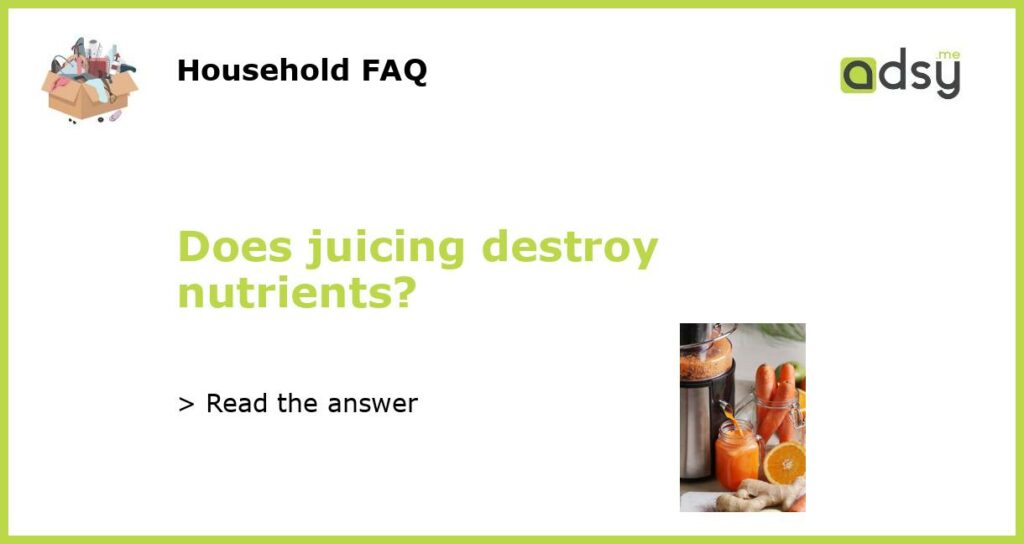The juicing trend
Juicing has become a popular trend for those seeking to infuse their diets with nutrients. Fruits and vegetables are packed with vitamins and minerals, and juicing allows for the consumption of larger quantities than one might typically eat.
Nutrient loss in juicing
However, concerns have been raised about the potential loss of nutrients in the juicing process. When fruits and vegetables are chopped, ground, and pressed through a juicing machine, some of their nutrient content can be lost.
Oxidation and heat
Two main factors contribute to nutrient loss in juicing: oxidation and heat. During the juicing process, fruits and vegetables are exposed to air, which can cause some of their vitamins to oxidize and degrade. Additionally, the heat generated by the juicing machine can further destroy sensitive nutrients like vitamin C.
Benefits of juicing
Despite these concerns, there are still benefits to juicing. Consuming fresh fruits and vegetables in any form is generally considered healthy, and juicing can make it easier to consume a wider variety of produce. Additionally, the pulp and fiber left behind in the juicer can be repurposed for use in other recipes, such as muffins or soups.
Maximizing nutrient retention
If you’re concerned about getting the maximum nutrient content from your juicing efforts, there are a few strategies you can employ. First, try to consume your juice as soon as possible after it’s made to minimize the amount of oxidation that occurs. Second, consider using a lower heat, slower juicer to minimize nutrient loss. Finally, try to incorporate a variety of produce into your juices to ensure you’re getting a broad range of vitamins and minerals.
Ultimately, juicing can be an effective way to boost your fruit and vegetable intake, but it’s important to be aware of potential nutrient loss and take steps to maximize the health benefits of your juice.






